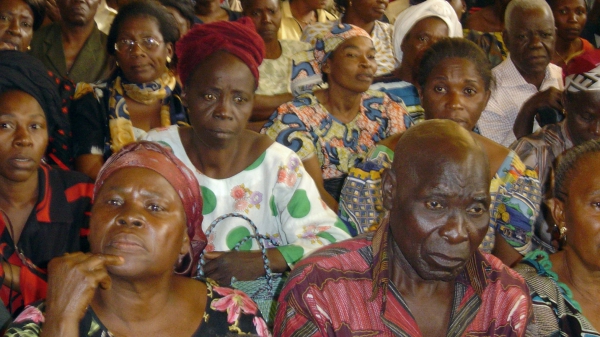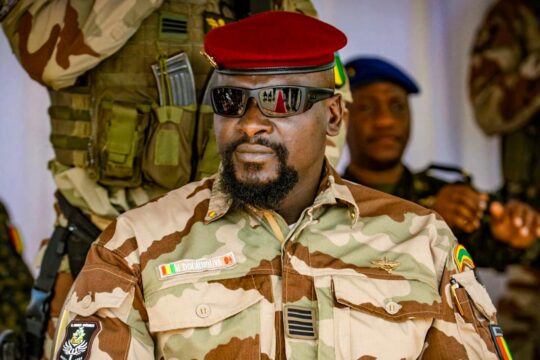On June 3, the Paris Appeals Court handed down a new decision in the case of those who “disappeared on the beach” in the Republic of Congo. It gives new hope to families of the 353 victims who have been waiting since 1999 for justice. This case revolves particularly around a Congolese General, Norbert Dabira, who is being prosecuted in France under an exemplary, although painfully slow, application of universal jurisdiction.
The 353 disappeared people were held and transferred to camps in the river port – known as the Beach − in 1999. They were among 1,500 Congolese who fled to the neighbouring Democratic Republic of Congo (DRC) during the civil war and were invited to return home after an agreement between the DRC, the Republic of Congo and the UN refugee agency UNHCR, which provided for a humanitarian corridor to guarantee their safety. However, when they arrived they were detained and questioned, especially young men for alleged links to the Ninja militia that fought against Congolese President Denis Sassou-Nguesso during the conflict. The 353 refugees who disappeared are also said to have suffered torture and inhumane detention conditions.
Victims’ families have been demanding justice ever since, both before the Congolese and French courts. They have filed a number of complaints, including against President Sassou-Nguesso and General Norbert Dabira, who was at the time inspector general of the Congolese army and who has a home in the Paris region.
A “sham” trial in Congo
The Congolese justice system was seized of the case in the months after the refugees disappeared, and in 2001 a complaint was also filed in France by victims – including two survivors −, the International Federation for Human Rights (FIDH), the Human Rights League (LDH) and the Congolese Human Rights Observatory (OCDH). Meanwhile, the Congolese authorities, under international pressure and hoping to stop the French investigation, quickly organized a trial. A verdict was handed down by the Brazzaville criminal court in 2005. It was much awaited by Congolese people but also by members of the army who feared convictions. Norbert Dabira was among the suspects, but was acquitted, along with some 15 other accused persons. The court found only the Congolese State responsible. It ordered the State to pay the equivalent of 15,000 Euros to families of only 85 of the disappeared.
The victims’ families denounced this trial as a “sham” and a strategic response to the opening of French investigations in the same case.
Slow justice
Despite the Congolese trial, General Dabira was questioned in France in August 2013 and put under investigation for torture and crimes against humanity in relation to the mass disappearance of Congolese citizens at Brazzaville river port between May 5 and 15, 1999. Not surprisingly, the defence argued that French justice was being manipulated and that there was political motivation against President Sassou-Nguesso. After many judicial twists and turns, the case was transferred in 2012 to the new “genocide and crimes against humanity” unit of the Paris Court of High Instance (Tribunal de Grande Instance).
At the same time President Sassou-Nguesso was determined to act against what he considered an “irreparable prejudice”, a violation of the sovereign equality of States but also the immunity of a foreign head of State. It is easy to understand that Sassou-Nguesso was nervous, since the complaint that led to the investigation named him directly as one of the people responsible. But his judicial attempt to block the procedures was finally deemed inadmissible by the International Court of Justice.
The June 3 decision
The Paris court’s June 3 decision is a new twist in this lengthy case. General Dabira had already tried several times to get the procedures stopped, even taking his case to the Court of Cassation (France’s highest court) in 2007. This time, the General wanted a December 2014 judicial questioning annulled on grounds that the investigating magistrate violated his right to remain silent. The strategy from the start was to argue that his case had already been tried in Brazzaville and a verdict rendered in 2005, and therefore he could not be tried again for the same allegations, even in France. It was as part of this strategy that the General obstinately refused to answer the French magistrate’s questions. However, once again, the court has ruled against him. This is therefore very good news for the victims’ families, since the investigations will continue, despite all these attempts to block them. One question remains, however: How many more years will it take before light is finally shed on the serious crimes committed against the disappeared?





